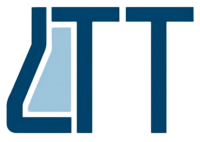
Popular courses in Brisbane
Certificate III in Pathology Collection
- There are no mandated entry requirements.
 LTT
LTT
Certificate III in Health Services Assistance
- There are no mandated entry requirements.


Certificate III in Health Administration
- There are no mandated entry requirements.
 Foundation Education
Foundation Education
Certificate III in Allied Health Assistance
- There are no mandated entry requirements.
 Foundation Education
Foundation Education
Certificate IV in Laboratory Techniques
- There are no mandated entry requirements.
 LTT
LTT
Certificate IV in Allied Health Assistance
- There are no mandated entry requirements.
 Foundation Education
Foundation Education
Diploma of Laboratory Technology
- There are no mandated entry requirements.


Perform Venous Blood Collections
- There are no mandated entry requirements.
 Benchmarque Group
Benchmarque Group
Bachelor of Health Science
- There are no mandated entry requirements.




Bachelor of Nursing
- There are no mandated entry requirements.







Bachelor of Medical Science
- There are no mandated entry requirements.
 Griffith University
Griffith University
Bachelor of Biomedical Science
- There are no mandated entry requirements.





Bachelor of Science (Biochemistry and Molecular Biology)
- There are no mandated entry requirements.


Bachelor of Science (Biology)
- There are no mandated entry requirements.



Bachelor of Science (Biotechnology)
- There are no mandated entry requirements.
 University of the Sunshine Coast
University of the Sunshine Coast
Bachelor of Science (Genetics)
- There are no mandated entry requirements.
 The University of Queensland
The University of Queensland
Bachelor of Science (Honours) (Biochemistry and Molecular Biology)
- There are no mandated entry requirements.
 The University of Queensland
The University of Queensland
Bachelor of Science (Honours) (Biomedical Science)
- There are no mandated entry requirements.


Bachelor of Science (Honours) (Genetics)
- There are no mandated entry requirements.
 The University of Queensland
The University of Queensland
Bachelor of Science (Honours) (Immunology)
- There are no mandated entry requirements.
 The University of Queensland
The University of Queensland
Frequently Asked Questions
Yes, there are course providers who offer 20 qualification(s) in Brisbane. Find a course provider near you. Once you make an enquiry, a course advisor will get in touch to discuss your study options and course fees.
Written by Courses.com.au Team
There are several campuses within the Brisbane area that provide pathology training. The nearest campus is located right in the center of Brisbane. You can also study a pathology course through online, traineeship learning. Find a course provider that best suits your needs.
Written by Courses.com.au Team
Potential job roles within pathology includes medical laboratory technician, pathology assistant or pathology collector (to name a few). Browse related occupations to find a career that suits your needs.
Written by Courses.com.au Team
Further reading


A Complete Guide to Certificates II & III in Security Operations
24th February 2025)
